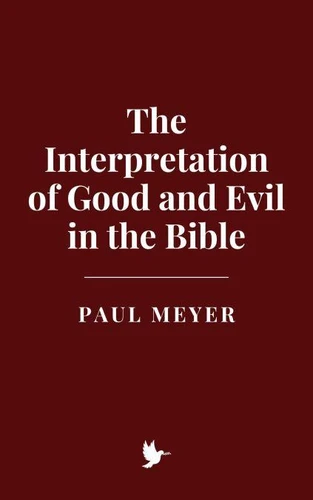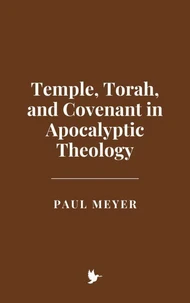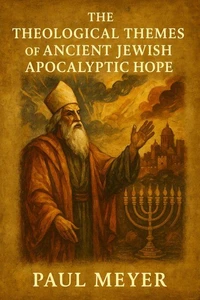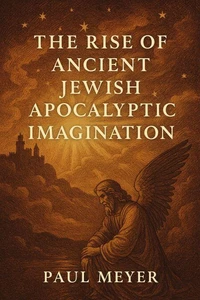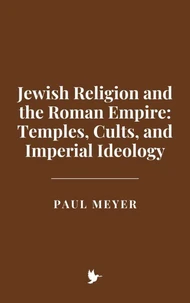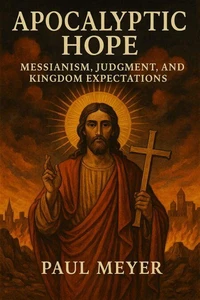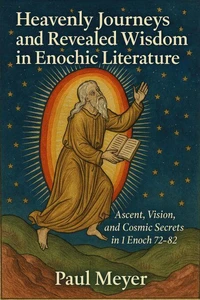The Interpretation of Good and Evil in the Bible
Par :Formats :
Disponible dans votre compte client Decitre ou Furet du Nord dès validation de votre commande. Le format ePub est :
- Compatible avec une lecture sur My Vivlio (smartphone, tablette, ordinateur)
- Compatible avec une lecture sur liseuses Vivlio
- Pour les liseuses autres que Vivlio, vous devez utiliser le logiciel Adobe Digital Edition. Non compatible avec la lecture sur les liseuses Kindle, Remarkable et Sony
 , qui est-ce ?
, qui est-ce ?Notre partenaire de plateforme de lecture numérique où vous retrouverez l'ensemble de vos ebooks gratuitement
Pour en savoir plus sur nos ebooks, consultez notre aide en ligne ici
- FormatePub
- ISBN8230517948
- EAN9798230517948
- Date de parution12/01/2025
- Protection num.pas de protection
- Infos supplémentairesepub
- ÉditeurIndependently Published
Résumé
The concepts of good and evil in the biblical narrative form the foundation of moral discourse, shaping theological, philosophical, and cultural perspectives throughout history. To understand the nature of this dichotomy, one must consider the historical and literary context in which the biblical texts were written, the ancient worldview that informed them, and the interpretative traditions that have emerged over millennia.
The biblical portrayal of good and evil is not a static or simplistic binary but a dynamic and multifaceted framework that reflects humanity's struggle to comprehend divine justice, moral agency, and cosmic order. The roots of the biblical narrative of good and evil trace back to the ancient Near East, a region steeped in mythological narratives and religious rituals that addressed the nature of chaos, morality, and divine order.
Texts such as the Enuma Elish and the Epic of Gilgamesh present themes of struggle between order and chaos, life and death, justice and transgression. The Genesis creation account, particularly in the first three chapters, emerges in dialogue with these earlier myths but reframes them through the lens of monotheism. Unlike the Babylonian gods who achieve cosmic order through violent conflict, the God of Israel creates a harmonious world through speech and command, proclaiming creation "good" (tov), a Hebrew term connoting harmony, purpose, and divine blessing.
The narrative of Adam and Eve in the Garden of Eden introduces the moral complexity of good and evil by portraying humanity as both subject to and capable of making moral choices. Genesis 2:16-17 records God's command to Adam: "You are free to eat from any tree in the garden; but you must not eat from the tree of the knowledge of good and evil, for when you eat from it you will certainly die." This prohibition introduces the moral weight of obedience and disobedience, framing humanity's first encounter with the possibility of sin.
The biblical portrayal of good and evil is not a static or simplistic binary but a dynamic and multifaceted framework that reflects humanity's struggle to comprehend divine justice, moral agency, and cosmic order. The roots of the biblical narrative of good and evil trace back to the ancient Near East, a region steeped in mythological narratives and religious rituals that addressed the nature of chaos, morality, and divine order.
Texts such as the Enuma Elish and the Epic of Gilgamesh present themes of struggle between order and chaos, life and death, justice and transgression. The Genesis creation account, particularly in the first three chapters, emerges in dialogue with these earlier myths but reframes them through the lens of monotheism. Unlike the Babylonian gods who achieve cosmic order through violent conflict, the God of Israel creates a harmonious world through speech and command, proclaiming creation "good" (tov), a Hebrew term connoting harmony, purpose, and divine blessing.
The narrative of Adam and Eve in the Garden of Eden introduces the moral complexity of good and evil by portraying humanity as both subject to and capable of making moral choices. Genesis 2:16-17 records God's command to Adam: "You are free to eat from any tree in the garden; but you must not eat from the tree of the knowledge of good and evil, for when you eat from it you will certainly die." This prohibition introduces the moral weight of obedience and disobedience, framing humanity's first encounter with the possibility of sin.
The concepts of good and evil in the biblical narrative form the foundation of moral discourse, shaping theological, philosophical, and cultural perspectives throughout history. To understand the nature of this dichotomy, one must consider the historical and literary context in which the biblical texts were written, the ancient worldview that informed them, and the interpretative traditions that have emerged over millennia.
The biblical portrayal of good and evil is not a static or simplistic binary but a dynamic and multifaceted framework that reflects humanity's struggle to comprehend divine justice, moral agency, and cosmic order. The roots of the biblical narrative of good and evil trace back to the ancient Near East, a region steeped in mythological narratives and religious rituals that addressed the nature of chaos, morality, and divine order.
Texts such as the Enuma Elish and the Epic of Gilgamesh present themes of struggle between order and chaos, life and death, justice and transgression. The Genesis creation account, particularly in the first three chapters, emerges in dialogue with these earlier myths but reframes them through the lens of monotheism. Unlike the Babylonian gods who achieve cosmic order through violent conflict, the God of Israel creates a harmonious world through speech and command, proclaiming creation "good" (tov), a Hebrew term connoting harmony, purpose, and divine blessing.
The narrative of Adam and Eve in the Garden of Eden introduces the moral complexity of good and evil by portraying humanity as both subject to and capable of making moral choices. Genesis 2:16-17 records God's command to Adam: "You are free to eat from any tree in the garden; but you must not eat from the tree of the knowledge of good and evil, for when you eat from it you will certainly die." This prohibition introduces the moral weight of obedience and disobedience, framing humanity's first encounter with the possibility of sin.
The biblical portrayal of good and evil is not a static or simplistic binary but a dynamic and multifaceted framework that reflects humanity's struggle to comprehend divine justice, moral agency, and cosmic order. The roots of the biblical narrative of good and evil trace back to the ancient Near East, a region steeped in mythological narratives and religious rituals that addressed the nature of chaos, morality, and divine order.
Texts such as the Enuma Elish and the Epic of Gilgamesh present themes of struggle between order and chaos, life and death, justice and transgression. The Genesis creation account, particularly in the first three chapters, emerges in dialogue with these earlier myths but reframes them through the lens of monotheism. Unlike the Babylonian gods who achieve cosmic order through violent conflict, the God of Israel creates a harmonious world through speech and command, proclaiming creation "good" (tov), a Hebrew term connoting harmony, purpose, and divine blessing.
The narrative of Adam and Eve in the Garden of Eden introduces the moral complexity of good and evil by portraying humanity as both subject to and capable of making moral choices. Genesis 2:16-17 records God's command to Adam: "You are free to eat from any tree in the garden; but you must not eat from the tree of the knowledge of good and evil, for when you eat from it you will certainly die." This prohibition introduces the moral weight of obedience and disobedience, framing humanity's first encounter with the possibility of sin.

